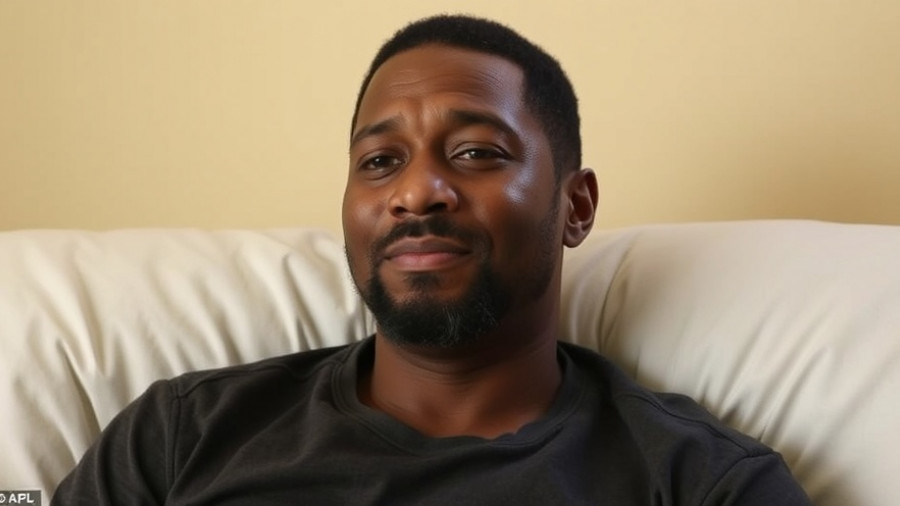
From Darkness to Light: Kevin Hines’ Inspiring Journey
In a world where mental health issues often remain shrouded in stigma and misunderstanding, the poignant story of Kevin Hines acts as a beacon of hope. This powerful narrative underscores the importance of mental health advocacy and the critical need for supportive networks for individuals grappling with suicidal ideation and other mental health challenges. Hines’ life was nearly extinguished after a suicide attempt, but his miraculous recovery and subsequent mission to promote mental wellness serve as a haunting reminder of the fragile balance between despair and hope.
In Kevin Hines reflects on how his life was miraculously saved after a suicide attempt, the discussion dives into mental health awareness, exploring key insights that sparked deeper analysis on our end.
The Science Behind Suicide Ideation
Suicidal thoughts can affect individuals across various demographics but are particularly prevalent among those facing mental health disorders such as depression, bipolar disorder, and PTSD. The American Psychiatric Association indicates that such thoughts are often rooted in a confluence of biological, psychological, and environmental factors. These complex dynamics make early intervention and robust mental health treatment critical.
Breaking the Silence: The Role of Mental Health Education
One of the most vital elements in combating the epidemic of suicide is increased mental health literacy. It is essential to educate the public not only on the signs of mental illness but also the avenues for support and recovery. Self-care, mindfulness, and effective therapy modalities like Cognitive Behavioral Therapy (CBT) and Dialectical Behavior Therapy (DBT) are cornerstones for effective treatment and can significantly lessen the severity of symptoms.
Real-Life Impact: Hines's Advocacy
Kevin Hines has transformed his personal tragedy into a powerful advocacy platform. His experiences with mental illness have empowered him to engage with various communities and share critical insights on resilience and recovery. By openly discussing his battles with mental illness, he dismantles stigma and encourages those struggling to seek help, ultimately fostering a culture of acceptance and understanding.
Coping Mechanisms for Mental Health Struggles
For individuals experiencing mental illness, the development of effective coping strategies can be life-changing. Practices such as mindfulness, meditation, and engaging in supportive relationships greatly enhance emotional regulation and resilience. Simple techniques such as grounding exercises or structured breathing can help mitigate panic attacks or feelings of anxiety, aiding in the management of daily stressors.
Encouraging Conversations on Mental Health
Hines’ story exemplifies the need for open conversations about mental health. As professionals, we must foster environments that welcome discourse on mental wellness in workplaces and community settings. By encouraging dialogue, we create spaces where individuals feel safe to express their experiences, leading to collective healing and understanding. This can also lead to increased advocacy for policies that support mental health treatment and research.
Future Directions in Mental Health Support
The evolving landscape of mental health treatment, including online therapy and mental health applications, offers new avenues for care. These resources can expand access for those unable to seek traditional therapy, effectively bridging gaps in mental health support and promoting therapeutic engagement among at-risk populations. It's clear that continued research and investment in mental health are essential as we work to address the high rates of mental illness and suicidal ideation worldwide.
The Power of Personal Stories in Healing
Personal accounts like Kevin Hines’ are integral to the broader conversation about mental health. They serve not only as testimonies of survival but also as catalysts for change in public perceptions of mental illness. By sharing these narratives, we normalize the struggles associated with mental health issues and encourage those in similar situations to pursue recovery.
Taking Action: How Everyone Can Help
Everyone has a role to play in advancing mental health literacy and support. Simple actions such as educating oneself about mental health issues, advocating for policy changes, or actively listening to someone in pain can create ripples of change. By prioritizing compassion, understanding, and visibility around mental health, we can help transform societal attitudes and reduce the stigma that often prevents individuals from seeking the help they desperately need.
Conclusion: Embracing Hope
Kevin Hines’ remarkable journey reiterates the importance of hope and resilience in the face of adversity. It serves as a reminder to professionals and the public alike that mental health advocacy is essential to creating a compassionate society where individuals seeking help can find solace and recovery. As we move forward, let us embrace a collective commitment to mental wellness and open dialogues. If you or someone you know is struggling with mental health challenges, reach out to a mental health professional today. Because every life matters.
 Add Row
Add Row  Add
Add 




Write A Comment